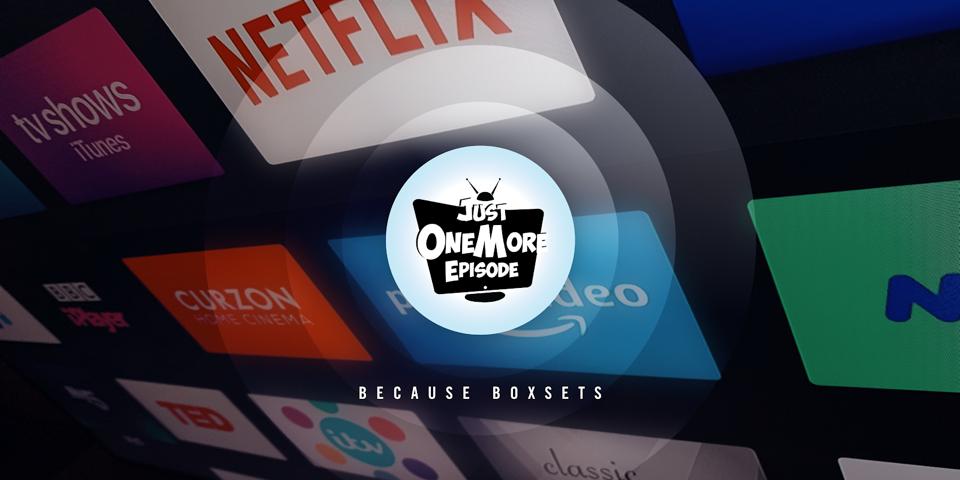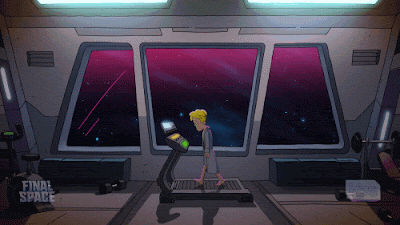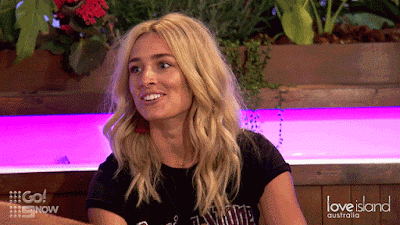While nobody will really recall 2020 as being a golden age
for anything (unless this really does turn out to be the year everyone stops
being racist), I would like to suggest that TV is, overall, doing a very good
job at the minute. We are spoiled for
choice. Luckily, this big old pandemic
has come along and given us more time at home to keep up with boxsets. If anything, let’s spread the rumour that
telly started the corona-thon. Thanks to
my evenings in, I’ve torn through (and loved) Normal
People and I May Destroy You from the BBC (great to see the institution taking time
out from delivering news coverage biased to chinless Tories), I’ve been making
the most of my Sky subscription for once (look out for upcoming posts), but I
seem to have totally bricked it with my Netflix
decisions. There’s a third series of Dark and a fifth of Last Chance U, both absolute gems, that I am
yet to start. Instead, I’ve been trying
to follow up on my impressive achievement of devouring the fourth series of Rick & Morty. Suddenly, I’ve craved cartoons about space.
Enter Final
Space, a Netflix animated series that my tired mind hoped might just be in
a similar vein. There’d be laughs,
clever humour, but also philosophical provocation and richly imagined worlds. I really do love a richly imagined world. But let me get this out of the way upfront:
the world in Final Space is so richly imagined that I couldn’t keep up and,
before long, I had no idea what was going on.
This is totally my fault.
And, in my defence, it only happened in the second series. Season one of Final Space introduces us to
our hero, Gary Goodspeed. An astronomical
everyman, Gary is nearing the end of a space prison sentence, living in isolation
in a 2001:
A Space Odyssey-inspired ship with an Alexa-esque companion
called HUE. His concerns are obtaining cookies
and staving off boredom. Enter Mooncake,
a squishy green floating being who makes Pokémon
sounds and turns out to be a hugely significant, er, thing. This is where my understanding runs out. He’s a creature, but also, I think, an energy
source, or a key, or you know, whatever you like really. Either way, I was pretty gripped by the first
series, slowly realising that each episode, rather than being a self-contained
animated sitcom, is a sequential instalment in a hugely ambitious story about
the very nature of space and time. Throughout,
irreverent humour is peppered. We come
across a lot of silly characters and ludicrous situations proliferate.
It’s well-crafted storytelling, but somehow, something didn’t
connect with me. That is my loss. By the second series, as the universe, literally,
of characters and backstories and mysteries expanded, my tiny mind lost its
footing and Final Space, in all of its potential to entertain, ended up being a
background show I had on while inexplicably baking gluten-free sponge cakes
simply because it’s something to do in lockdown. Ultimately, the show’s humour seems to
detract from its serious storylines, while its serious storylines undo its
humour. Maybe it’s basic of me not to
care about the end of the world when someone is whingeing about a cookie.
But there is a lot to love, and the animation is breath-taking. If you like action happening in space, then
feast your eyes on these cosmic bodies. Futuristic
vessels slip past, all slinky, while battles and asteroid clusters come to life
in three dimensions. It reminds me of a
book I had as a child: some sort of graphic novel from the Ulysses 31 series. I don’t know where it came from and I never
actually read the words, just looking at the pictures in the early nineties and
thinking: yeah, this is space and that. If
that specific reference doesn’t work for you, and why would it, then think
anime. And if you don’t know what that
is, you’re probably better off watching Love
Island Australia.
While I typically advocate for almost all Netflix animations
(Bojack Horseman, F Is For Family, Big Mouth, Disenchantment)
I will swerve any subsequent series of this.
If I have failed to do it justice, then so be it. Let the talented voice cast, the incredible
animators and imaginative writers all come after me. Justice is already served in that I am
persisting with a poorly read blog while their creative output is getting
greenlit by the planet’s biggest streaming giant. At least there can be no spoilers in this
post, as I couldn’t even tell you what Final Space really is. But yes, give it a go if your sci fi skills
are better than mine, but otherwise there’s a host of animation out there that’s
easier to connect with.

































